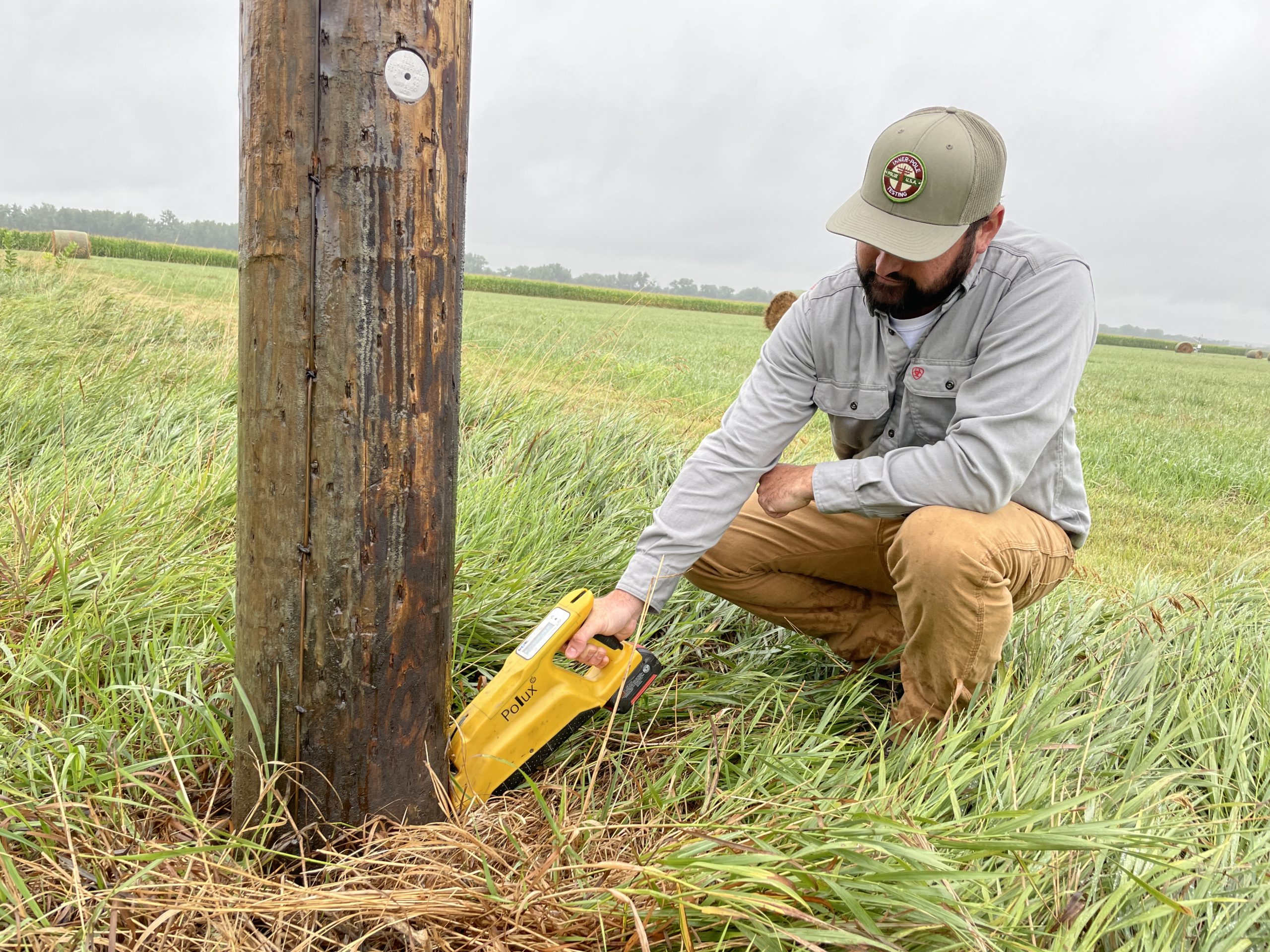
As a not-for-profit utility, Dawson PPD focuses on cost-effectively extending the life of its existing facilities while maintaining adequate levels of safety and reliability. Testing wooden poles helps the District ensure reliability and long life of its equipment, saving customers money in the long run.
Traditionally, pole testing involved a hammer for sounding, a shovel for digging around the base and drilling holes to test for decay. Today, Dawson PPD hires a contractor that uses a scientifically-based system called POLUX as a less-invasive and more accurate form of testing.
POLUX works by sending two, three inch long probes the size of an eight-penny nail into the base of the utility pole. This is the most vulnerable point where decay is most likely to occur on a pole. The probes measure resistance and moisture content of the pole. This information, along with the type of wood the pole is made of and how it was treated are run through a computer program with the pole’s GPS location recorded.
Typically, Dawson PPD uses a Southern Yellow Pine tree for its poles, which should have a resistance of 8,000 pounds per square inch when new. If the measurement falls below 50 percent of the recommended resistance, in this case 4,000 PSI, the pole is marked for replacement.
All of Dawson PPD’s poles are tested every 10 years on a rotating schedule with 10,000-11,000 poles tested annually.
OTHER NEWS
Small, focus group of irrigators meeting
What? Join us for an irrigation focus group discussion about: power factor electrical safety irrigation policies public power possible merger between Dawson PPD and The Central Nebraska Public Power & Irrigation District. We are limiting attendees to the first 15...
Dawson & Central boards vote to advance consolidation talks
Two public power districts are moving forward into the next phase of consolidation talks after receiving positive findings from the latest assessment. Directors of The Central Nebraska Public Power and Irrigation District and Dawson Public Power District both voted...
Efficiency key to competitive ethanol market
Selling corn ethanol is a competitive business. It’s essentially the same product no matter who makes it. How can one company stand out from the rest? The answer: efficiency. KAAPA has invested nearly $50 million in its Ravenna facility to improve efficiency – and the...


